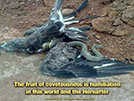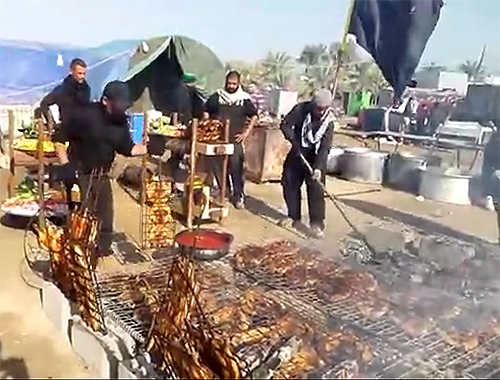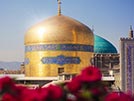verse12
- Details
- Hits: 2114
(12) وَلَقَدْ أَخَذَ اللّهُ مِيثَاقَ بَنِي إِسْرَآئِيلَ وَبَعَثْنَا مِنهُمُ اثْنَيْ عَشَرَ نَقِيبًا وَقَالَ اللّهُ إِنِّي مَعَكُمْ
لَئِنْ أَقَمْتُمُ الصّلوةَ وَآتَيْتُمُ الزَّكَوةَ وَآمَنتُم بِرُسُلِي وَعَزَّرْتُمُوهُمْ وَأَقْرَضْتُمُ اللّهَ قَرْضًا
حَسَنًا لَّأُكَفِّرَنَّ عَنكُمْ سَيِّئَاتِكُمْ وَلأُدْخِلَنَّكُمْ جَنَّاتٍ تَجْرِي مِن تَحْتِهَا الأَنْهَارُ فَمَن كَفَرَ بَعْدَ ذَلِكَ
مِنكُمْ فَقَدْ ضَلَّ سَوَاء السَّبِيلِ
Section 3
The covenants with the jews and the christians
The covenants with the jews - The covenants with the christians - The actual position of Jesus
12. " And certainly Allah made a covenant with the Children of Israel, and We raised among them twelve chiftains, and Allah said: ' Verily I am with you, if you keep up prayer and pay the poor-rate and believe in My messengers and assist them and lend Allah a kindly loan, I will most certainly cover your evil deeds and I will certainly cause you to enter Gardens beneath which rivers flow; but whoever among you disbelieves after that, has indeed strayed from the right path.
Commentary:
The chiefs of the Israelites were twelve persons. The ministers of Moses (a.s.) and the custodians of the tuelve tribes were from among them. It is narrated from the Messenger of Allah (p.b.u.h.) who, in a tradition, said: " The vicegerents after me are twelve. They are as many as the chiefs of the Israelites " (1) The attempt of the opponents of Ahlul-Bayt (a.s.) is in vain when they try to adapt this figure to Orthodox Caliphs, Umayyid Caliphs, and the Caliphs of Abbasids, though it adapts to neither of them. There are, of course, many traditions recorded which denote that the Prophet himself (p.b.u.h.) mentioned the names of these twelve persons. According to his statement recorded in a tradition (2) the first of them is Ali-ibn-Abitalib and their last one is Hadrat Mahdi (May Allah hasten his auspicious advent).
The Arabic phrase: /'azzartumuhum/ is derived from the word /'azzara/ which means: to assist with honour '. Therefore, the Arabic term /ta'zir/ refers to a kind of assistance to the sinner in abandoning the crime. That is why that Islamic punishments have the function of education rather than vengeance.
The Qur'anic phrase /sawa'-us-sabil/ means the middle way that swerving from which is going towards aberration and fall.
Explanations:
1- Allah is with us when we observe some conditions including: prayers, poor-rate, belief in Trugh, assisting prophets, and giving charity. So, if we leave them, the Grace of Allah will be ceased.
2- Prayer, poor-rate, and charity have existed in all the Divine religions. However, performing obligations alone is not enough, but following the totality of obligatory and recommended deeds, without approaching the prohibited things, is effective.
3- Prayer, poor-rate, and charity are meaningful when they are accompanied with leadership and mastership - with the acceptance of mastership of the whole prophets, not a part of them.
4- There is no room for the sinners in Heaven. Purification is first, and then being admitted to enter into it.
5- The only way to the forgiveness of Allah, is Faith and righteous deeds.
****
(1) Musnd Imam Ahmad-ibn-Hunbal, vol. 1, p. 398 and many other books
(2) Yanabi'-ul-Mawaddah. p. 117











